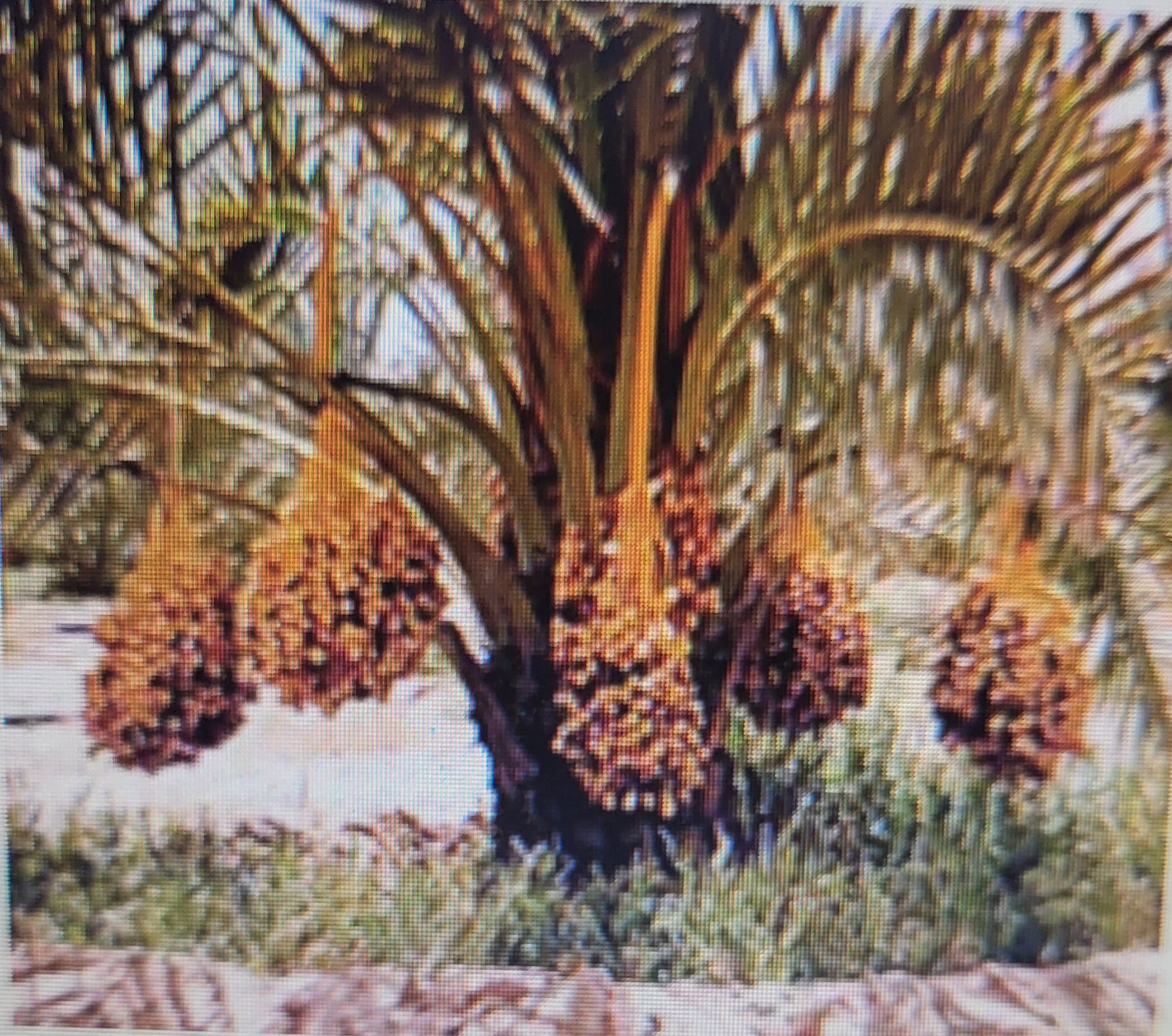In The Name of Allah, The Most Merciful, The Bestower of Mercy.
Our beloved Salafi brother and friend Abu Maryam [Tariq Al-Kashmiri (may Allah preserve him)] posted – at Salafitalk.net in 2011-an admonition by Al-Allaamah Rabee Bin Haadi Al-Madkhali [may Allah preserve him]
An Advice And A Reminder For All Those Who Speak In The Name Of Salafiyyah
Al-Allaamah Rabee Bin Haadee Al Madkhali [may Allah preserve him] said:
All praise is for Allah and may the peace and blessings be upon the Messenger of Allah, his family, his companions, and whoever follows his guidance. To proceed:
This is advice and a reminder for all those who speak in the name of as-Salafiyyah, but when the Imtihaan (test) comes and when spears and arrows are directed at its liver by Ahlul-Makr (the people of vile deception), the Ahlul-Fitan (the people of trials and tribulations) and the troublemakers, we do not find them being from its army nor from those who fight for it but rather we find from them oddity and strangeness. Indeed there has appeared from those who claim Salafiyyah – who wait in ambush of it and its people – stances and actions which are in opposition to Salafiyyah, its Manhaj, and its foundational principles which cause the hair upon the head to turn white (with grief).
From those positions and stances:
1) – Defence of the People of Major Innovations, such as al-Hulool, Wahdatul-Wujood (the Unity of Existence), Wahdtul-Adyaan (the Unification of Religions), Ukhuwwatul-Adyaan (the Brotherhood of all religions), Masaawatul-Adyaan (the equality of all religions) as well as many forms of Shirk and superstitions. And bearing witness for them that they are indeed from Ahlus-Sunnah, rather the affair has reached such that some of their heads commend the haughty insolent despotic elders of the Raafidah and Soofees, and describe them with statements such as “indeed they are trustworthy scholars” and praise their methodologies (Madhaahib). Moreover, despite all of that his ignorant followers still support him.
2) – Waging a wicked and oppressive war upon Ahlus-Sunnah, smearing them and marring their Manhaj and principles.
3) Inventing principles that conflict/contradict the principles of Ahlus-Sunnah and their methodology to wage war against Ahlus-Sunnah and in defence of the people of those major innovations. For example [from those innovated principles]:
a) “We correct but we do not disparage”. [Footnote 1]
b) Also: “The vast all-embracing Manhaj which accommodates Ahlus-Sunnah – according to their own technical term – and also accommodates the whole of the Ummah” but rather it encroaches and restricts Ahlus-Sunnah and their Manhaj and principles.
c) The Manhaj of al-Mawaazanaat. [Footnote 2]
d) Taking the Mujmalaat (the general spurious statements) of the people of misguidance upon their Mufassilaat (clear specific/detailed statements), whilst it is clear that these Mufassilaat (detailed statements) were held by them before these Mujmalaat (spurious/general statements). And other such principles that Ahlus-Sunnah have condemned and clarified their falsehood and deviation. [Footnote 3]
4- And to evade (at-tamallus) the truth and to be firm upon their falsehood, they have contrived:
a) The [false] principle – (It’s not obligatory upon me).
b) The [false] principle – (It does not Yaqanee (satisfy, convince, persuade) me.
c) And waging war against the foundational principle of al-Jarh al-Mufassar (the detailed disparagement/criticism).
d) And the rejection of the report of trustworthy narrators (At-Thiqaat).
e) And putting the condition of having a consensus [of the scholars] in tabdee (pronouncing a person to be an innovator) of any innovator. Even if/no matter if the proof and evidences have been established which necessitates/obligates their tabdee, and no matter what the status/level of the one who rules with that tabdee and even if they are many; if one person from the people of desires opposes them, then this tabdee is dropped (becomes null and void).
f) They have fabricated/contrived a principle to as-Subb (revile and insult) the companions of Muhammad (sallallaahu alaihi wasallaam) with the vilest of revilements and insults by describing them as al-Guthaa-iyyah (scum). When requested to excuse themselves from that they said: (It is not revilement, it’s not revilement.) And they said: (if this wording emanated from a Sunni then it is not revilement and if it came from a Raafidee then it becomes revilement and insult.) And they have been staunch upon this since 1424H up until this day.
These principles have become the fountains of Fitan (trial and tribulation) like pieces (sudden amassing of clouds) of the dark night. Accompanying all these calamities is arrogance, obstinate opposition, and haughtiness towards those who advise them and clarify their deviation and their mixed-up confusion. Whilst with all these calamities, afflictions, and other than that we still find those who commend them and declare that they indeed are from Ahlus-Sunnah. The following are Prophetic Narrations I gathered together to remind those people so that perhaps they will remember and withdraw from that which they are upon.
1- On the authority of Qais bin Abee Haazim, who said: Aboo Bakr [may Allaah be pleased with him] stood up and praised Allah [The Mighty and Majestic] and extolled Him, and then said: O people, indeed you recite this Ayah (Qur’anic verse): [يَٰٓأَيُّهَا ٱلَّذِينَ ءَامَنُوا۟ عَلَيْكُمْ أَنفُسَكُمْ لَا يَضُرُّكُم مَّن ضَلَّ إِذَا ٱهْتَدَيْتُمْ َ – O you who believe! Take care of your ownselves, [do righteous deeds, fear Allah much (abstain from all kinds of sins and evil deeds which He has forbidden) and love Allah much (perform all kinds of good deeds which He has ordained)]. If you follow the right guidance and enjoin what is right (Islamic Monotheism and all that Islam orders one to do) and forbid what is wrong (polytheism, disbelief and all that Islam has forbidden) no hurt can come to you from those who are in error. [Surah Al-Maa’idah. Ayah 105]; and you put it in its improper place, for indeed I heard the Messenger of Allah (sallallaahu alaihi wasallaam) say: “When the people see an evil (al-Munkar) and do not change it, all of them are about to be punished by Allaah altogether.” [I]
2- Also on the authority of Hudhaifah bin al-Yamaan [may Allaah be pleased with him] that the Prophet [SallAllaah alaihi wasallam] said: “By Him in Whose hand is my soul, certainly you will order with the good and forbid the evil, or else a punishment of Allah is about to be sent upon you from Him and then if you were to supplicate to Him He will not respond to you.” [II]
3- And on the authority of Ibn Mas’ood -[radiyallaahu anhu]- that the Messenger of Allaah [sallallaahu alaihi wasallaam] said: “There is not a Prophet that Allaah sent to a nation before me except that he had Hawariyyoon (helpers) and companions who would betake with his Sunnah and follow his command. Then after them came people who would say (speak with) that which they do not do, and they do that which they are not ordered with; so whoever fights them with his hand then he is a believer, and whoever fights them with his tongue then he is a believer and he who fights them with his heart then he is a believer, and there is not even a mustard seeds amount of faith (Eemaan) left after that”. [III]
In these Ahadeeth is the clarification from the Messenger of Allaah -[sallallaahu alaihi wasallam] – regarding the danger of al-Munkaraat (the evils) of innovations and sins. Its danger and evil punishment is not just confined to those who perpetrate it, but rather it includes whoever Yudaahin (flatters and compromises) with its people and is amicable with them, and also it encompasses and includes more so whoever defends them (innovations) and its people. The affair becomes even more severe if he wages war against whoever forbids it (innovations) from the people of the truth, those well established within the boundaries set by Allaah, those who war against the people of Misguidance and Fitan (turmoil and trials).
4- On the authority of Nu’man bin Basheer -[radiyallaahu anhumaa]- the Prophet -[sallallaahu alaihi wasallam] – said: “The example of al-Mud-hin (the compromiser) Allaah’s Hudood (orders and limits) and (in comparison to) the one who violates them (Allaah’s limits and orders) is like example of people who drew lots for (seats on) a ship. Some of them were on its lower part and others were on its upper part. So those that were on its lower part would pass by those in the upper one with the water which troubled them (the people in the upper part). Then one of them (the people in the lower part) took an axe and started making a hole in the bottom of the vessel. The people of the upper part came and said: ‘What is wrong with you?’ He replied, “You have been troubled much by me and I have to get water.” Now if they prevent him from doing that they will save him and themselves, but if they leave him (to do what he wants), they will destroy him and themselves”. [IV]
Al-Mud-hin (the Compromiser): He is the flatterer who sees and hears al-Munkaraat (the evil) from the innovations and other than it and does not forbid it. Rather he flatters and compromises with those who fall into it, perpetrate it, and defend it. So how about if he goes beyond that to defend them, beautify their image (present them in favourable light) and bear witness for them that they are from Ahlus-Sunnah?! So how will he be, if he transgresses beyond all that by forsaking those who forbid it, making the people think that they (Ahlus-Sunnah) are not upon the truth and are opposers to the correct Manhaj?!
These stances encourage the perpetrators of these evils to remain upon their misguidance; it compels people with weak personalities to have a good suspicion of them and to plunge them into their outstretched arms, and to aid and defend them. [These are] the affairs which lead many people to turn away from the Manhaj of the Salaf as-Saalih in many different countries. It is incumbent upon this type [of people] to fear Allaah. They should look again at and revise their stances with seriousness and sincerity. They should comprehend the dangerous effect resulting from their stances; which they will asked about in front of Allaah The Mighty and Majestic ý on the day when no soul will be able to benefit another whatsoever. Furthermore, it is incumbent upon them to look again to their Bitaanah (close friends and companions) with seriousness for indeed the matter is dangerous. And I remind you of the statement of Allah [The Most High]: [ٱلْأَخِلَّآءُ يَوْمَئِذٍۭ بَعْضُهُمْ لِبَعْضٍ عَدُوٌّ إِلَّا ٱلْمُتَّقِينَ – Friends on that Day will be foes one to another except Al-Muttaqun (pious)]. [Surah Az-Zukhruf. (43)]
يَٰٓأَيُّهَا ٱلَّذِينَ ءَامَنُوا۟ كُونُوا۟ قَوَّٰمِينَ بِٱلْقِسْطِ شُهَدَآءَ لِلَّهِ وَلَوْ عَلَىٰٓ أَنفُسِكُمْ أَوِ ٱلْوَٰلِدَيْنِ وَٱلْأَقْرَبِينَ
O you Who believe! Stand out firmly for justice, as witnesses to Allaah even against yourselves, your parents, or your kin. [Surah an-Nisa: 135]
And [I also remind you] with the statement of the Messenger of Allaah [Salla Allaahu alaihi wasallam] The Deen (Religion) is an-Naseehah (sincerity and sincere advising), the Deen (Religion) is an-Naseehah (sincerity and sincere advising)”; he said it three times. They said: “To whom or the Messenger of Allaah?” He said: “To Allaah, to His book, to His Messenger, to leaders of the Muslims and their common people.”
I remind you with the Hadeeth of the virtuous Companion Jareer bin Abdullah al-Bajalee [radiyAllaahu anhu] on the authority of Ziyaad bin ‘ilaaqah who said: I heard Jareer bin Abdullah stand and deliver a khutbah on the day al-Mugheerah bin Sh’ubah died saying: “Upon you is the taqwa (fear) of Allaah the Mighty and Majestic, sobriety and tranquility until the (new) Ameer comes for indeed he will come now”. Then he said: “Seek forgiveness for your Ameer for indeed he used to love pardoning (others)”. And he said: “To proceed: then indeed I came to the Messenger of Allaah -[Salla Allaahu alaihi wasallam] – and I said to him: “I want to pledge allegiance to you upon Islaam. So he put a condition upon me that I should (sincerely) advise every Muslim. So I gave him the pledge of allegiance upon that and by the Lord of this Masjid indeed I am to all of you a (sincere) advisor.” Then he sought Allah’s forgiveness and descended (from the pulpit). [V]
I remind them of that which is in these Aayaat and Ahadeeth regarding the obligation of establishing sincerity to Allah [i.e. by worshipping Allah in truth etc], sincerity to His Book [i.e. by believing in it and that it is the speech of Allah sent down, and it is not created, etc], sincerity to His Messenger [i.e. by testifying in truth and based on the absolute certainty that he is Allah’s Messenger, etc], sincerity to the rulers of the Muslims [i.e. by believing in their right to rulership, obeying and listening to them in that which is good, advising them in private, etc] and sincerity to the common people [i.e. by dealing with them, calling them to the path of Allah, etc]. [Footnote 4] And with that which they contain from the obligation of forbidding the evil and the severe threat for those who do not establish these obligations and do not forbid the evil. And I say to them as Jareer said: “By the Lord of this Masjid, indeed I am to all of you a sincere advisor.” But rather I say, “By the Lord of the Heavens and the Earth, indeed I am to them a (sincere) advisor”.
I remind them of the statement of Anas [radiyallaahu anhu] “Indeed, you do actions which in your eyes are considered finer than the hair, whilst we used to consider them during the lifetime of the Messenger of Allah [salla Allaahu alaihi wasallam] to be from al-moobiqaat (the destructive/deadly sins).” [VI]
And from my advice to them is that they should study the Manhaj of the Salaf as-Saalih from its sources and adhere to it and implement it upon themselves and others. I ask Allaah that He grants them insight into that which they are ignorant of and thus erred in or did with deliberate intent. May the peace and blessings of Allah be upon our prophet Muhammad, his family, and his companions.
Written by:
Rabee’ Bin Haadee ‘Umayr al-Madkhalee
9/2/1432H
———————————————-
Footnote 1: https://www.salafipublications.com/sps/downloads/pdf/NDV180008.pdf
Footnote 2: https://abuiyaad.com/r/muwazanah
Footnote 3: Shaykh Rabee’ On Mujmal and Mufassal : The Deceptions of al-Ma’ribee: https://www.salafipublications.com/sps/sp.cfm/sad/…/nbq/frm/images/nbq/downloads/pdf/sad/sp.cfm?subsecID=NDV18&articleID=NDV180006&articlePages=1
Footnote 4: See explanation of the forty hadith of An-Nawawi by Al-Allaamah Saalih Al-Fawzaan [may Allah preserve him] titled: Al-Minhatur Rabbaaniyyah Fee Sharhi Al-Arba’een An-Nawawiyyah. pages 112-121. 1st Edition 1429AH (2008)
[I] This Hadeeth is Saheeh (Sound Authentic). It is reported by Imaam Ahmad in his Musnad (1/5), Aboo Dawood in his Sunan Hadeeth (4338, Ibn Maajah in his Sunan, [Chapter] Regarding the Fitan, Hadeeth (4005) and is also reported by other Imaams].
[II] This Hadeeth is reported by at-Tirmidhee in al-Fitan, Hadeeth (2169) and he said: This Hadeeth is Hasan (Good). But there is a weakness in its chain of narration. It is also reported by Imaam Ahmad in his Musnad (5/388). And at-Tirmidhee declared the hadeeth Hasan due to it having two witnessing (supporting) narrations with a similar meaning which have a weakness in their Isnaad (chain of narration). One of them [witnessing narrations] is the Hadeeth of Aishah – radiyallaahu anha – reported by Imaam Ahmad in his Musnad (6/159), the second of the two is the hadeeth of Aboo Hurairah – radiyallaahu anhu – reported by al-Bazzaar in his Musnad (8508) and al-Khateeb in his at-Taareekh (13/92). Based upon the various routes (chains) the grading of this hadeeth is raised to the level of Hasan li-gayrihi. Al-Allaamah al-Albaanee has declared it to be Hasan in Saheeh al-Jaami (6947).
[III] Reported by Muslim in [the Book of] al-Eemaan Hadeeth (50), Aboo Awaanah (1/35, 36) and Ibn Mandah in al-Eemaan (page 183, 184).
[IV] Reported by al-Bukhaaree in his Saheeh, [the Book of] Shahaadaat (Witnesses), Hadeeth (2686), Imaam Ahmad in his Musnad (4/268,269), at-Tirmdihee in al-Fitan (2173), Ibn Hibbaan as in al-Ihsaan (297, 298). The wording of this Hadeeth with Imaam Ahmad and at-Tirmidhee is: The example of the one who abides by Allaah’s orders and limits in comparison to al-Mud-hin (the compromiser) of Allaah’s Hudood (orders and limits) is like the example of people who drew lots for (seats on) a ship at sea. So some of them attained the upper part of it and the others got the lower part. Then those on the lower part climb up/ascend to draw water to drink and they pour it upon the people on the upper part. The people on the upper part said: “We will not let you ascend and harm us.” So those on the lower part said: “Then indeed we will have to bore into the bottom of the ship to get water to drink.” If they prevent them and forbid them from doing that they will all be saved and if they leave them they will all drown.
[V] Reported by al-Bukhaaree in his Saheeh, [the Book of] Faith (al-Imaan), Chapter: the statement of the Prophet [Salla Allaahu alaihi wasallam] -: “The Deen is sincerity to Allaah, His Prophet, the leaders of the Muslims and their common people” and the statement of Allaah the Most High: [ إِذَا نَصَحُوا۟ لِلَّهِ وَرَسُولِهِۦ – if they are sincere and true (in duty) to Allah and His Messenger], Hadeeth (58). And Imaam Ahmad (4/357). And also reported by al-Bukhaaree in [the Book of] Faith (al-Imaan), Hadeeth (57), and Muslim in [the Book of] Faith (al-Imaan), Hadeeth (56) both of them reported it in summarized form].
[VI] Reported by al-Bukhaaree in [the Book of] Heart-Softening narrations (ar-Riqaaq), Hadeeth (6492), Ahmad in his ‘Musnad’ (3/157) and Aboo Y’alaa in his ‘Musnad’ Hadeeth (4207) and (4314).
Allah’s aid is sought! Indeed, many changes have taken place by way of deviation and other painful affairs, and afflicted many. We ask Allah to keep us safe and guide everyone who has fallen into those calamities and has not yet returned to what is correct and praiseworthy. We ask Allah:
اللَّهُمَّ أَصْلِحْ لِي دِينِي الَّذِي هُوَ عِصْمَةُ أَمْرِي
وَأَصْلِحْ لِي دُنْيَايَ الَّتِي فِيهَا مَعَاشِي
وَأَصْلِحْ لِي آخِرَتِي الَّتِي فِيهَا مَعَادِي
وَاجْعَلِ الْحَيَاةَ زِيَادَةً لِي فِي كُلِّ خَيْرٍ
وَاجْعَلِ الْمَوْتَ رَاحَةً لِي مِنْ كُلِّ شَرٍّ
O Allah! Rectify my religion for me, which is the safeguard of my affairs; rectify my worldly [affairs], wherein is my livelihood; and rectify my Afterlife to which is my return; and make life for me [as a means of] increase in every good and make death for me as a rest from every evil. [Saheeh Muslim Number: 2720]
اللَّهُمَّ بِعِلْمِكَ الْغَيْبَ وَقُدْرَتِكَ عَلَى الْخَلْقِ أَحْيِنِي مَا عَلِمْتَ الْحَيَاةَ خَيْراً لِي وَتَوَفَّنِي إِذَا عَلِمْتَ الْوَفَاةَ خَيْراً لِي، اللَّهُمَّ إِنِّي أَسْأَلُكَ خَشْيَتَكَ فِي الْغَيْبِ وَالشَّهَادَةِ، وَأَسْأَلُكَ كَلِمَةَ الْحَقِّ فِي الرِّضَا وَالْغَضَبِ، وَأَسْأَلُكَ الْقَصْدَ فِي الْغِنَى وَالْفَقْرِ، وَأَسْأَلُكَ نَعِيماً لَا يَنْفَذُ، وَأَسْأَلُكَ قُرَّةَ عَيْنٍ لَا تَنْقَطِعُ، وَأَسْأَلُكَ الرِّضِا بَعْدَ الْقَضَاءِ، وَأَسْأَلُكَ بَرْدَ الْعَيْشِ بَعْدَ الْمَوْتِ، وَأَسْأَلُكَ لَذَّةَ النَّظَرِ إِلَى وَجْهِكَ وَالشَّوْقَ إِلَى لِقَائِكَ فِي غَيْرِ ضَرَّاءَ مُضِرَّةٍ وَلَا فِتْنَةٍ مُضِلَّةٍ، اللَّهُمَّ زَيِّنَّا بِزِينَةِ الْإِيمَانِ
وَاجْعَلْنَا هُدَاةً مُهْتَدِينَ
O Allah! By Your Knowledge of the unseen and by Your Power over creation, let me live if life is good for me, and let me die if death is good for me; O Allah! I ask You to grant me (the blessing of having) fear of You in private and public; And I ask you (to make me utter) a statement of truth in times of contentment and anger; And I ask You for moderation when in a state of wealth and poverty; And I ask you for blessings that never ceases; And I ask You for the coolness of my eye that never ends; And I ask You (to make me pleased) after (Your) decree; And I ask You for a life of (ease, comfort, tranquility etc) after death; I ask You for the delight of looking at Your Face (i.e. in the Hereafter) and yearning to meet You without any harm and misleading trials (coming upon me); O Allah! Adorn us with the adornment of Eemaan, and make us (from those who are) guided and guiding (others). [Sunan An-Nasaa’ee’ Number 1305 & declared Saheeh by Imaam Albaani (rahimahullaah) in As-Saheehah Number 1301]







